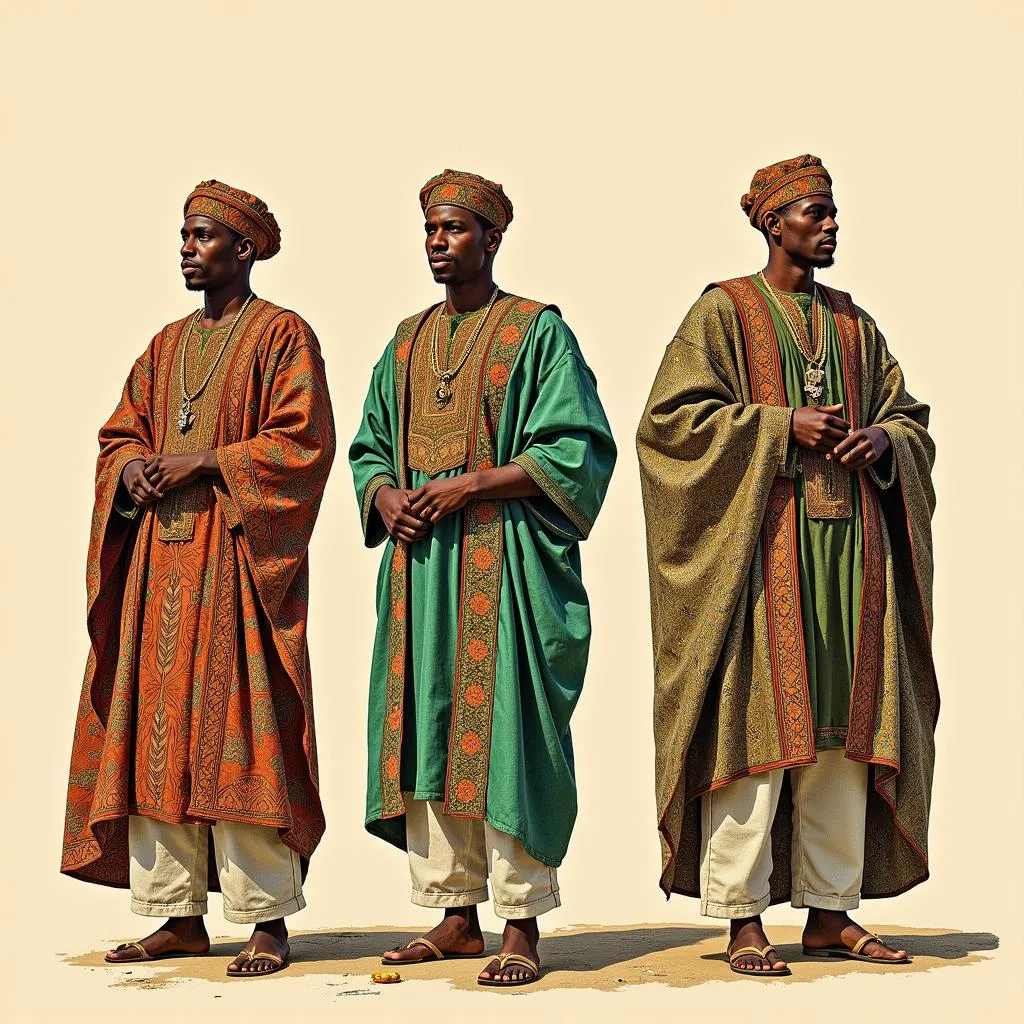Unveiling African Elephant Breeding Facts
African Elephant Breeding Facts are a fascinating window into the lives of these majestic creatures. Understanding their reproductive cycle, social behaviors, and the challenges they face is crucial for conservation efforts. This article delves into the intricacies of African elephant breeding, offering a comprehensive look at their reproductive journey.
The Reproductive Cycle of African Elephants
Female African elephants, also known as cows, reach sexual maturity between the ages of 10 and 12 years, though they may start breeding a few years later. Bulls, on the other hand, typically reach sexual maturity around the age of 10-12 but often don’t successfully breed until their late 20s or even 30s when they are large and strong enough to compete with other bulls. A cow’s estrous cycle lasts around 14-16 weeks, with only a brief window of 2-4 days within that cycle when she is receptive to mating. This makes timing crucial for successful breeding.
The gestation period for African elephants is remarkably long, lasting approximately 22 months, the longest of any mammal. This extended pregnancy allows for the full development of the calf within the womb, leading to highly precocious offspring.
After giving birth, cows typically do not breed again for several years, usually 3-9 years, allowing them to devote their energy to nurturing their calves. This extended interbirth interval plays a significant role in regulating elephant populations.
You might be interested in learning about the African bull elephant facts.
Social Dynamics and Breeding Behaviors
African elephant breeding is intertwined with their complex social structures. Female elephants live in matriarchal herds led by an older, experienced female. These herds provide a supportive environment for raising calves, with multiple females contributing to their care.
Breeding, however, often occurs outside of these core herds. When a cow is in estrus, she emits specific vocalizations and chemical signals that attract bulls from miles around. These bulls will compete for the opportunity to mate with her, engaging in elaborate displays of dominance and strength. Learn more about african bull elephant pictures.
Threats to African Elephant Breeding and Conservation Efforts
Despite their impressive size and strength, African elephants face significant challenges regarding breeding and survival. Habitat loss due to human encroachment continues to shrink their natural range, restricting their access to resources and disrupting breeding patterns. Poaching for ivory remains a significant threat, decimating elephant populations and removing key breeding individuals.
Dr. Anika Motis, a renowned wildlife biologist specializing in African elephants, notes, “The loss of older, experienced females due to poaching has a devastating impact on elephant populations. These matriarchs hold vital knowledge about resources and survival strategies, which are crucial for successful breeding and calf rearing.”
Furthermore, human-wildlife conflict, often arising from competition for resources, can lead to the killing of elephants, further impacting their breeding potential. Conservation efforts are focused on protecting elephant habitats, combating poaching, and mitigating human-wildlife conflict. These initiatives are vital for ensuring the long-term survival of these magnificent creatures and their ability to reproduce successfully. Find out more on african bull elephant penis.
Dr. Jabari Olumide, a conservationist working in East Africa, emphasizes, “Community-based conservation programs are essential for protecting elephants. By empowering local communities to manage and benefit from elephant populations, we can create a sustainable future for both people and wildlife.”
How Long Does It Take an Elephant to Get Pregnant?
The gestation period for African elephants is around 22 months.
At What Age Do African Elephants Start Breeding?
Females reach sexual maturity around 10-12 years old, while males reach maturity around the same age but typically don’t breed successfully until their late 20s or 30s.
What are the Main Threats to African Elephant Breeding?
Habitat loss, poaching, and human-wildlife conflict are the primary threats.
Knowing the african elephant tusk weight and african elephant weight at birth can give you a broader understanding of these creatures.
Conclusion
Understanding african elephant breeding facts is crucial for appreciating the complexities of these animals’ lives and the challenges they face. By supporting conservation efforts and promoting responsible tourism, we can help safeguard the future of these iconic creatures for generations to come.
FAQ
- How often do African elephants breed? Female elephants typically breed every 3-9 years.
- How long do baby elephants stay with their mothers? Calves stay with their mothers for several years, learning essential survival skills.
- What is the role of the matriarch in elephant breeding? The matriarch leads the herd and provides guidance and protection for young elephants.
- How does habitat loss affect elephant breeding? Habitat loss reduces resources and disrupts breeding patterns, impacting population growth.
- How can I help protect African elephants? Supporting conservation organizations and making responsible tourism choices can contribute to elephant protection.
- How does poaching affect elephant breeding? The loss of breeding age elephants due to poaching can severely impact population growth and genetic diversity.
- What is musth in male elephants and how does it relate to breeding? Musth is a periodic state of heightened testosterone in male elephants, making them more aggressive and increasing their breeding chances.
Need support? Contact us 24/7: Phone: +255768904061, Email: kaka.mag@gmail.com, or visit us at Mbarali DC Mawindi, Kangaga, Tanzania.

